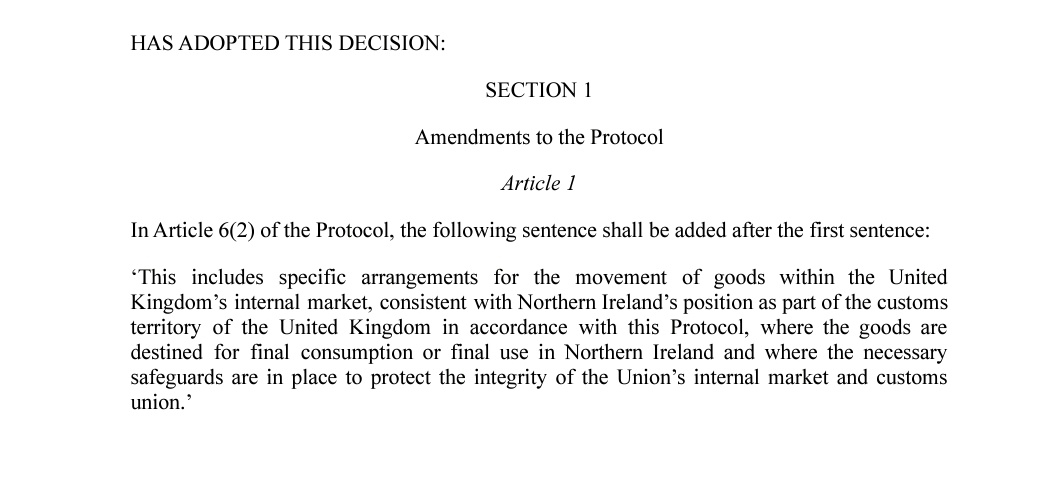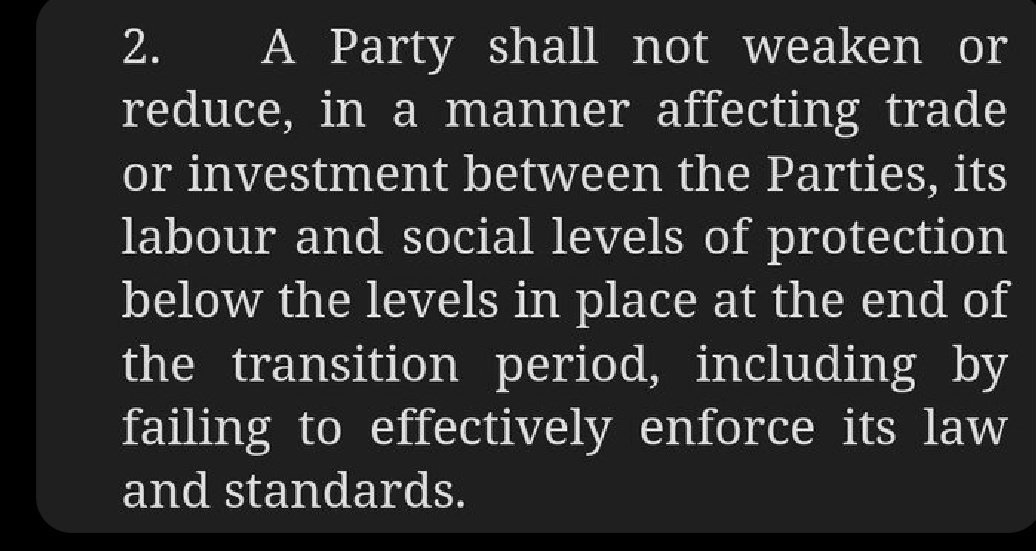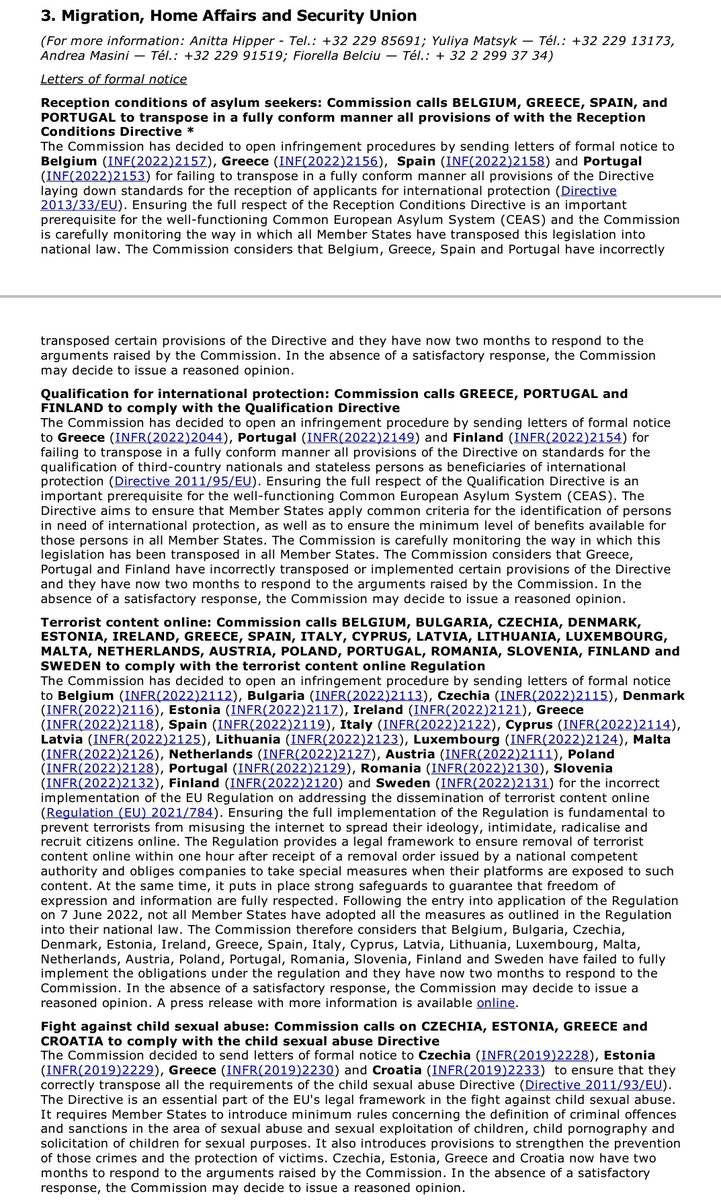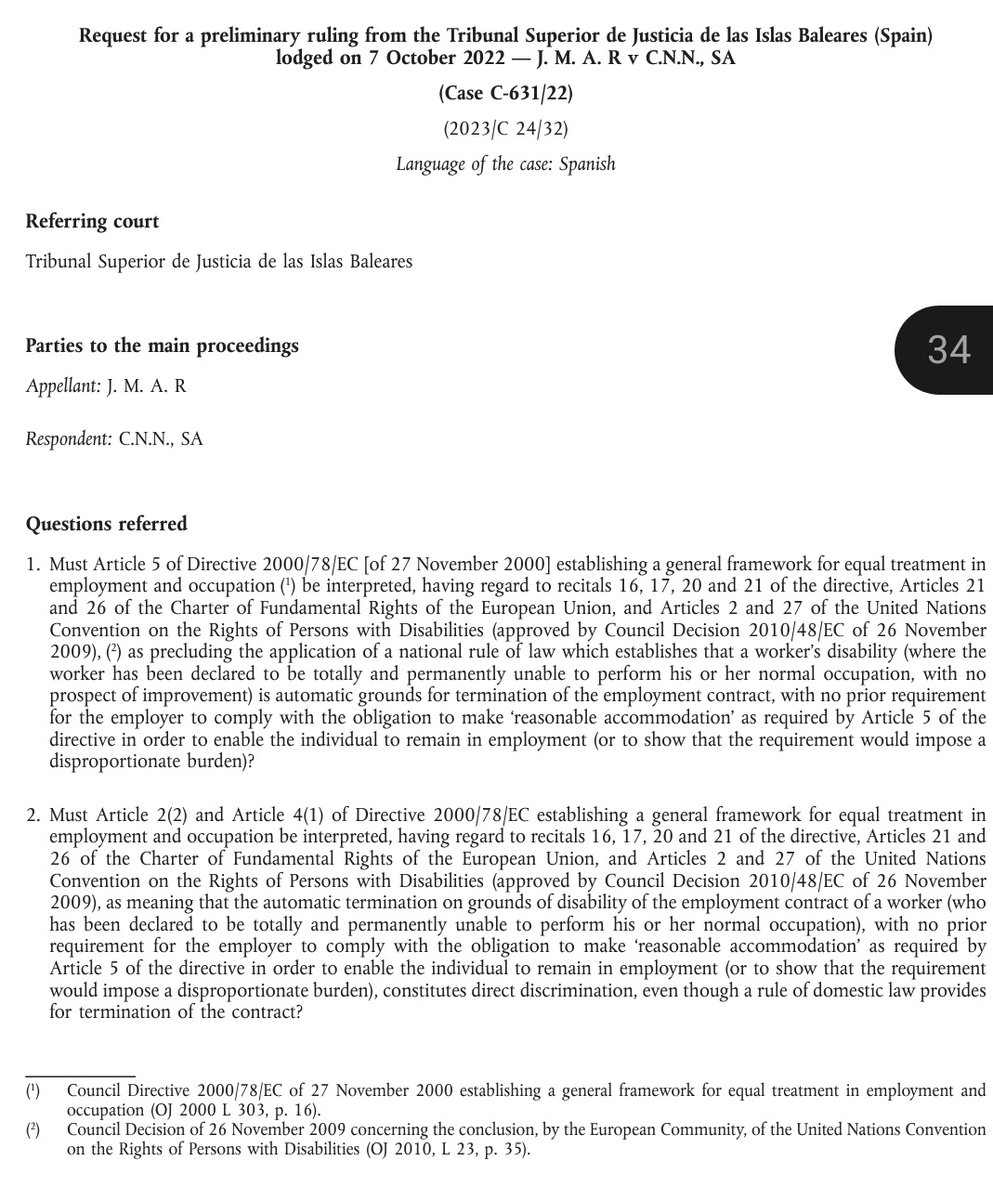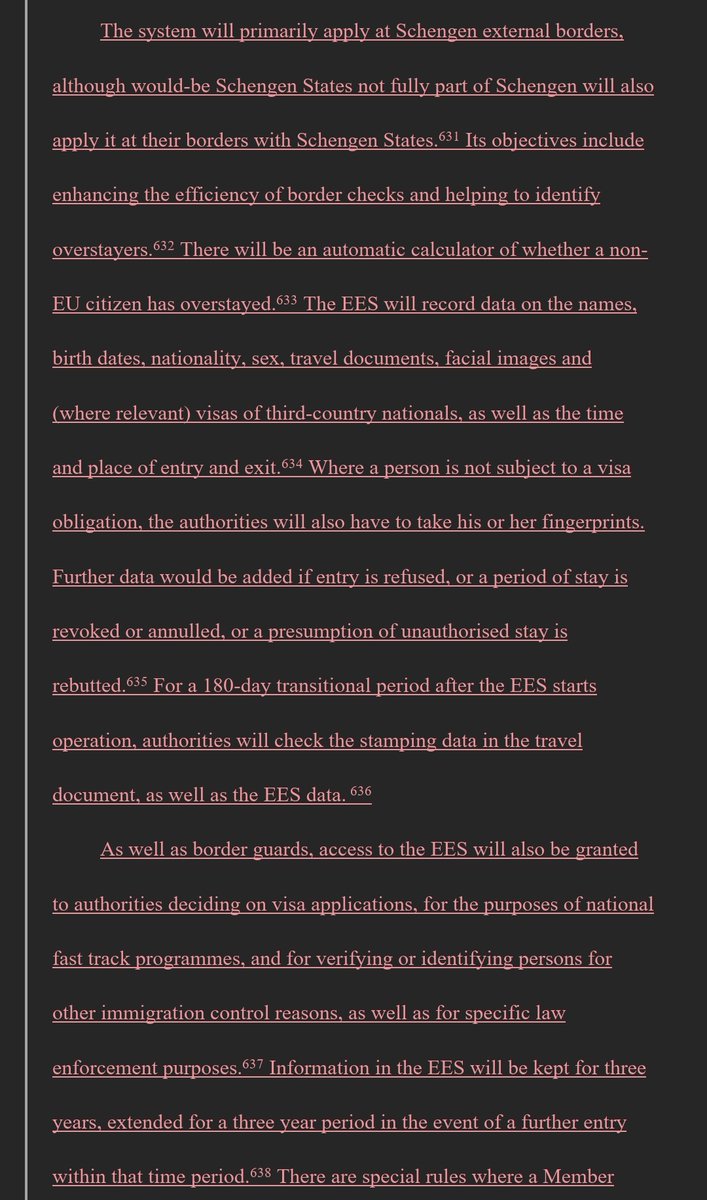
3/ next, a joint declaration of the EU Commission and the UK, which summarises the main points. Includes reciprocal commitments to drop NI protocol bill on one side and legal proceedings on the other. Joint Committee will meet soon to adopt legal texts. 

4/ A statement of the UK government legal position. Unilateral, not binding, but interesting. Pours an ocean full of cold water on the NI protocol bill 



5/ we pause for the thoughts of John Redwood
6/ There are thirteen more documents, mostly soft law non-binding declarations.
But the key to the package is a draft Joint Committee decision, which will be binding and will *amend the protocol*. It uses the Joint Committee powers to amend the withdrawal agreement (see para 3)
But the key to the package is a draft Joint Committee decision, which will be binding and will *amend the protocol*. It uses the Joint Committee powers to amend the withdrawal agreement (see para 3)

8/ next, the protocol is amended to add the "Stormont brake" on amended or replaced EU law. Note the threshold of "significant impact on everyday life" etc 

9/ I've summarised this new procedure in a gif
10/ VAT. The protocol is amended, not to drop requirements on VAT fully, but to add more flexibility for the UK (re NI) in an Annex 

11/ A similar approach is taken with excise tax. A specific exemption including "alcoholic beverages packaged in large draught containers served for immediate consumption in hospitality venues". The drafters are clearly party animals. 

12/ the drafting is full of complex cross-references to EU tax law, so what can I say except "Tax Lawyers Assemble!"
13/ the biggest bit of the Joint Committee decision will replace a previous Joint Committee decision. This is the part that will reduce checks on goods going from GB to NI. (I am not screenshotting all of it) 

14/ more on the Stormont brake - a unilateral declaration by the UK, but added as an annex to the Joint Committee decision. Bit of a soft/hard law hybrid. Note the condition that the NI executive is operational, assembly members act in good faith, and the minority veto 
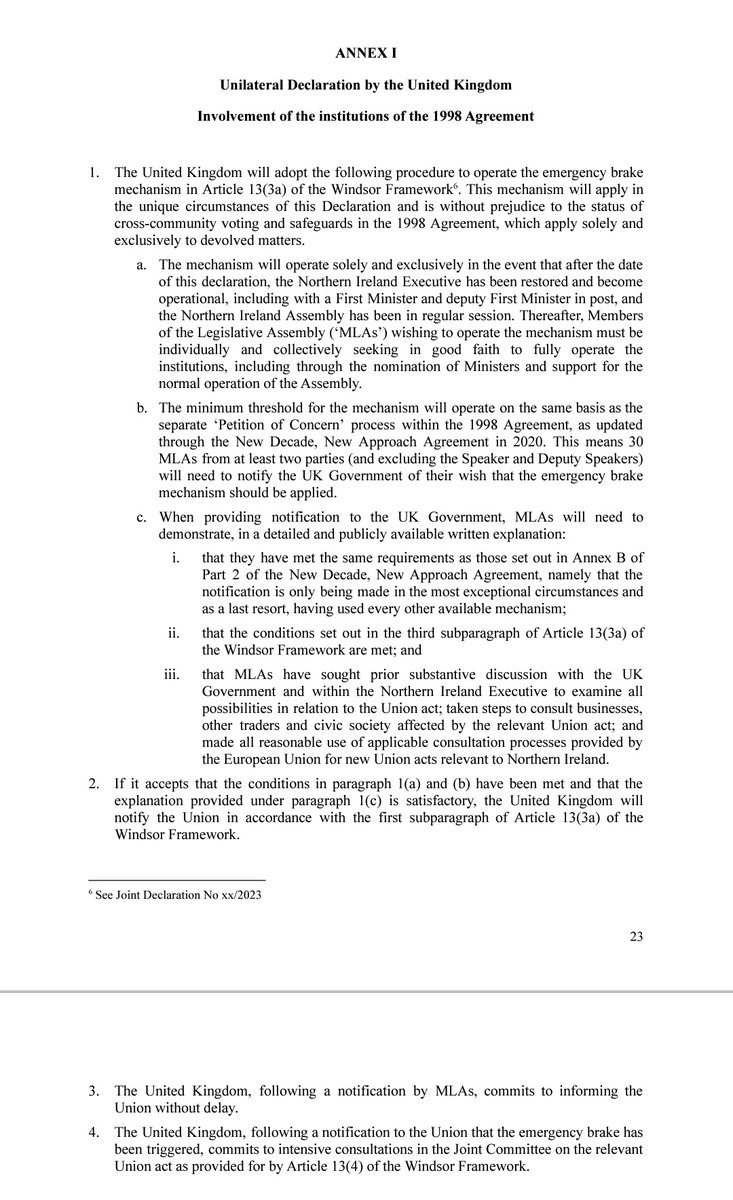
15/ moving on to the soft law. Joint declaration: the whole protocol should be called the "Windsor Framework" from now on. Renaming things always works well. Just ask Brandon! 

16/ next, a joint committee recommendation on what happens if the UK pulls the Stormont brake and the arbitrators rule that the UK has abused it. (Not quite as sexy as I've made it sound) 

18/ the next thing is binding: a change to the rules of procedure of a working group, so NI stakeholders are more involved 

Unilateral UK declaration on review of the consent mechanism, ie the possibility of a majority of members of the NI assembly to vote to end most of the protocol - the consent mechanism isn't changed though 

22/ unilateral UK declaration on goods moving from NI to GB - when export rules of EU law will apply 
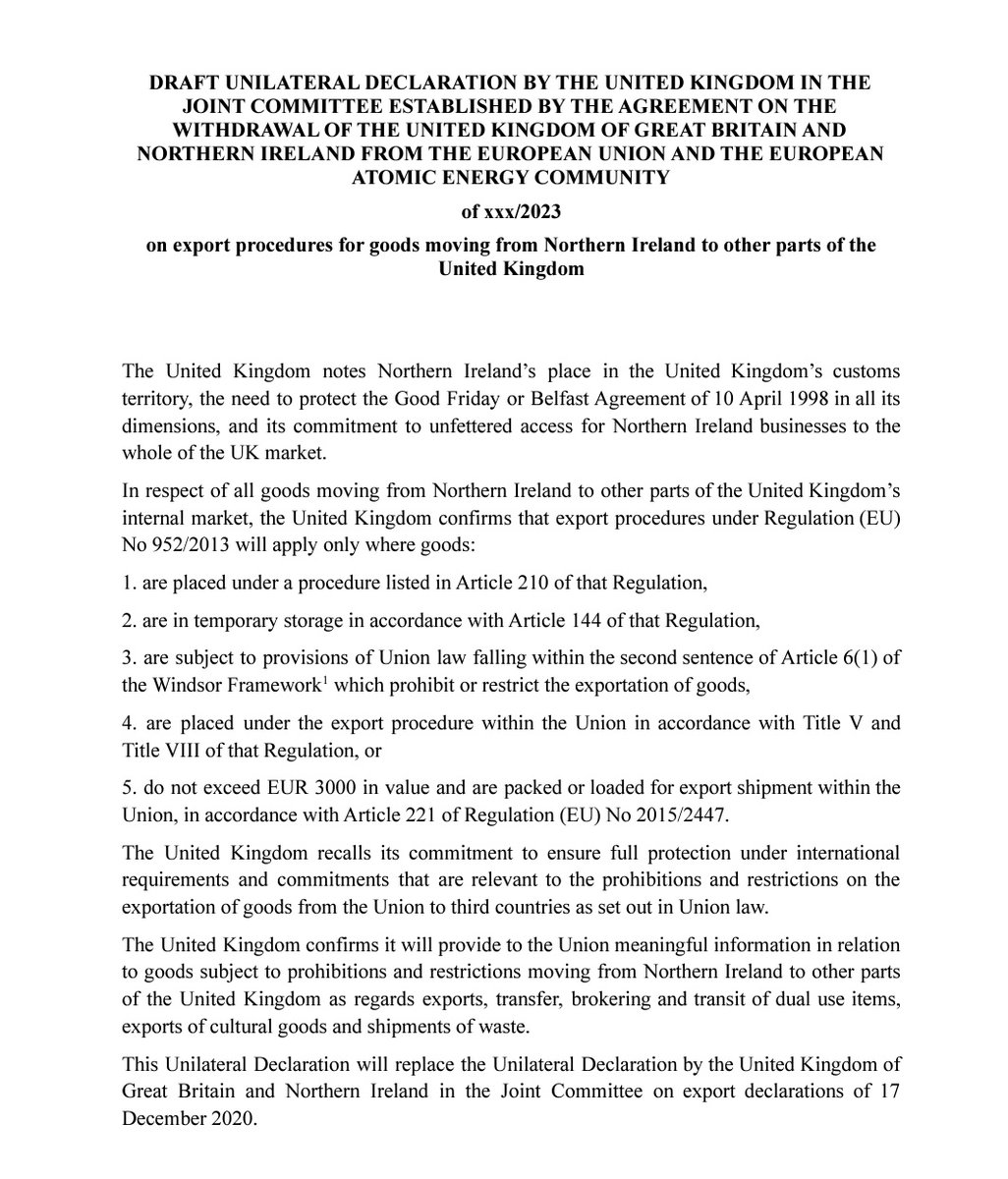
23/ unilateral UK declaration on parcels *until* the new Joint Committee decision takes effect - that decision will simplify parcels moving between GB and NI 

25/ State aid: EU State aid law *continues to apply to NI* - despite UK government implying otherwise. The protocol is *not amended* on this point, but there is a joint declaration interpreting it. 

26/ note also parallel proposals for EU legislation and other measures on medicine and food checks (SPS) etc
commission.europa.eu/strategy-and-p…
commission.europa.eu/strategy-and-p…
27/ the SPS proposal includes rules on the movement of pets from GB to NI, although tbh it looks a little more complicated than putting doggo on the back seat and driving onto the ferry 

28/ on the CJEU, there is *no change*, even in soft law - see the Commission Q and A. This refers to the general commitment to try to settle disputes politically (see the joint declaration in tweet 3) 

29) any interest in a blog post version of all this?
• • •
Missing some Tweet in this thread? You can try to
force a refresh


